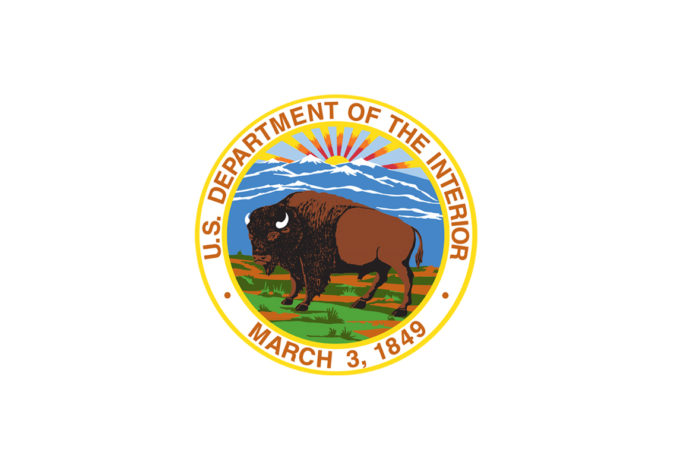OROFINO, ID – The Department of the Interior has transferred fish production at Dworshak National Fish Hatchery to the Nez Perce Tribe, an important move underscoring the Biden-Harris administration’s commitment to empowering Indigenous communities and supporting tribal trust responsibility.
Secretary of the Interior Deb Haaland joined leadership from the Nez Perce Tribe, U.S. Fish and Wildlife Service and U.S. Army Corps of Engineers to tour the hatchery and commemorate the transfer. The fish produced at the hatchery serve help to meet the United States’ trust responsibility for protecting the resources reserved in the treaties between the Nez Perce Tribe and the United States.
“The transfer of fish production at the Dworshak National Fish Hatchery to the Nez Perce Tribe is a triumph that is nearly 20 years in the making, and a testament to what can happen when we work collaboratively,” said Secretary Haaland. “There is much to be gained when we respect and integrate Indigenous knowledge into our conservation initiatives. Today’s event commemorates Native people’s resilience, conservation efforts guided by Indigenous knowledge, and the Biden-Harris administration’s commitment to honor our trust responsibility and treaty obligations to tribes.”
“The U.S. Fish and Wildlife Service’s wildlife management and conservation efforts are strengthened when we incorporate Indigenous knowledge and rely on the best available science,” said U.S. Fish and Wildlife Service Director Martha Williams. “I am proud of the work the Service has done to manage the fish production at this hatchery jointly with the tribe – and I look forward to its continued success as we work to ensure that the fish hatchery and surrounding community continue to thrive together.”
Dworshak National Fish Hatchery, located in the heart of the Nez Perce Reservation in Orofino, ID, has been jointly managed by the U.S. Fish and Wildlife Service and Nez Perce Tribe since 2005. The U.S. Fish and Wildlife Service will continue its longstanding partnership with the Nez Perce Tribe by continuing to provide support to the hatchery through the Idaho Fish and Wildlife Conservation Office and Pacific Region Fish Health Program.
Dworshak National Fish Hatchery was constructed in 1969 by U.S. Army Corps of Engineers to mitigate for the impacts of Dworshak Dam on the North Fork of the Clearwater River and the four lower Snake River dams. The U.S. Army Corps of Engineers will continue to own the facility.
The hatchery produces 2.1 million steelhead, 2.55 million spring Chinook, and 500,000 coho salmon annually. These are all anadromous fish, meaning they make a 550-mile journey down the Snake and Columbia Rivers as juveniles to the Pacific Ocean, then return as adults to spawn. Steelhead and salmon have and continue to play a key role in the cultural past of the Native communities that once lived in or near the Clearwater River basin. The fish produced provide harvest opportunities for the shared tribal and non-tribal fisheries in the Clearwater, Snake and Columbia Rivers in Idaho, Washington and Oregon.
The Nez Perce people, also known as the Nimiipuu, lived and thrived in this region since time immemorial. The town of Ahsahka, next to Dworshak National Fish Hatchery, was once the site of the largest inland fishing village for Native Americans throughout the Pacific Northwest. Each season, tribes would gather on this site and harvest from the abundant North Fork runs of Chinook and steelhead.














































